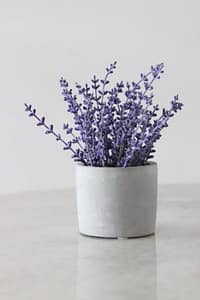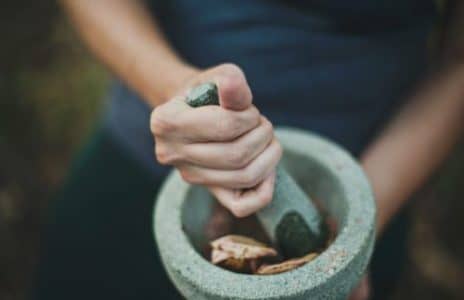[grwebform url=”https://app.getresponse.com/view_webform_v2.js?u=wfNAY&webforms_id=57753701″ css=”on” center=”off” center_margin=”200″/]
Visit our Esty Store for Wellness Resources! https://www.etsy.com/ca/shop/BeBestuWellnessDepot
 Herbs have long been used as remedies for a variety of ailments, and anxiety is no exception. There are many different herbal remedies for anxiety, and the best way to find out which ones are right for you may vary depending on the type of anxiety you are experiencing. Some popular herbs that have been shown to be helpful for anxiety include lavender, chamomile, valerian, hops, lemon balm, and passionflower.
Herbs have long been used as remedies for a variety of ailments, and anxiety is no exception. There are many different herbal remedies for anxiety, and the best way to find out which ones are right for you may vary depending on the type of anxiety you are experiencing. Some popular herbs that have been shown to be helpful for anxiety include lavender, chamomile, valerian, hops, lemon balm, and passionflower.
Aromatherapy is related to herbs as it the oils of the plants that are extracted. Look at our article here for more information on aromatherapy / herb connection.
We’ll go through some of the most popular and available options, as well as their uses and benefits, in this article:
Lavender

Lavender can be made into a tea or used as an oil for aromatherapy or massage. You can also put dried flowers beneath your pillow or add the oil to a relaxing bath.
Lavender, when combined with chamomile and rosemary in a massage oil, can help with General Anxiety Disorder (GAD) and boost self-esteem. However, it must be done on a regular basis. (2)
Kava
Kava is an anti-anxiety herb that helps with insomnia as well as other anxiety disorders like social phobia and post-traumatic stress disorder. The plant’s root is used to create medication. It can be taken orally or administered topically. However, because Kava can impair coordination, it should not be consumed while driving or operating heavy machinery. Kava should not be consumed for an extended period of time since it can harm the liver.
It should not be taken on a regular basis for more than eight weeks without first assessing the liver’s function. Long-term kava consumption can cause a scaly rash known as koebnerization, as well as stomach pain, nausea, and vomiting. So, in retrospect, it may not be the best option for treating your anxiety, as fear of having these disorders may exacerbate the problem! (3)
Valerian
For hundreds of years, Valerian has been used to alleviate sleeplessness, anxiety, and stress. The plant’s root is used to create medication. It can be taken orally or applied to the skin as a patch that releases small doses of medication straight into the bloodstream through undamaged skin such as the arm or leg. When taken by mouth, valerian acts similarly to lorazepam (an anxiety medication), but with fewer morning sleepiness and side effects.
It does not, however, work as swiftly as other medications. Headaches, dizziness, tiredness, upset stomach, and nightmares are all possible side effects. Some persons have liver problems as a result of excessive doses, including jaundice (yellowing of the skin and whites of the eyes), black urine, stomach pain, and vomiting. Having said that, the majority of evidence that Valerian helps alleviate anxiety symptoms is anecdotal. (5)
Lemon Balm
Lemon balm is a herb that has been shown to help with mild to moderate anxiety, as well as depression. It provides a soothing effect but does not make you tired. Lemon balm is known to have antioxidant qualities that could aid in the treatment of anxiety. (5) Making tea with freshly plucked lemon balm leaves is one of the greatest ways to use lemon balm for anxiety. Lemon balm, on the other hand, is found in a variety of meals and has been shown to help with anxiety symptoms. (6) They’re also excellent!
Ginseng
Ginseng is a herb that has been used in traditional medicine for ages to help with exhaustion, stress, and mental clarity. Ginsenosides, the active ingredients in ginseng, are thought to be responsible for these actions. (8) Ginseng is a root that can either be taken as a supplement or turned into a tea.
Ashwagandha
For thousands of years, Ashwagandha has been used to treat anxiety and insomnia. The plant’s root is used to create medication. There are many different extracts on the market, but most studies on ashwagandha for anxiety have found that it assists people with generalized anxiety disorder minimize their symptoms (GAD). This is a syndrome in which people worry excessively about a range of things for months at a time, causing issues like insomnia, muscle tightness, and restlessness (8).
Milk Thistle
Milk Thistle has been used to treat liver disorders by traditional healers for generations. However, due of its soothing impact, current study has discovered that it can also boost mood, reduce anxiety, and help with sleeplessness. (9)
Chamomile

St. John’s Wort
St John’s Wort is a herb that has been used for medical purposes since antiquity. It is distinguished by its bright yellow flowers, which bloom during the cooler months of the year. St John’s Wort has recently gained popularity for a variety of different applications, the most prevalent of which is to relieve anxiety.
Hypericin and hyperforin, the active chemicals, work as antidepressants by regulating neurotransmitters like serotonin and noradrenaline in the brain. St John’s Wort also lowers blood levels of the stress hormone cortisol. (11)
Jasmine
Jasmine oil has been used as an antidepressant for hundreds of years and can be used to relieve anxiety, particularly in people who suffer from post-traumatic stress disorder. The sweet-smelling jasmine oil is thought to contain intoxicating properties that can make you feel like you’re intoxicated or high. However, the scent’s calming properties stem from its capacity to alleviate anxiety by interacting with neurotransmitters in the brain that regulate mood. (12)
YlangYlang
The aroma of YlangYlang flowers, like that of Jasmine, has a relaxing impact on the mind and body, making it ideal for lowering anxiety (13). Because of its delightful scent, which can be described as sweet, gentle, and exotic, it is thought to have been named after the Tagalog term for ‘flowers from heaven.’ Anti-anxiety visualizations with jasmine and ylang ylang would be enhanced, especially when the person is visualiszng himself in an exotic environment.
Patchouli
Because of its calming properties, the leaves of the patchouli plant can help alleviate anxiety, which is why it has long been used in Chinese medicine to treat sleeplessness. Because of its ability to control the chemical serotonin within the brain, people who suffer from mood imbalances caused by stress, anger, or fear will benefit the most from using this oil (14).
To Sum Up

Natural cures are not as potent as medications, and they are frequently thought to be harmless. However, just because something is natural doesn’t mean it’s safe; for example, toxic mushrooms. So, before doing anything listed above, please do your due diligence and visit your doctor.
Don’t forget to visit our Esty Wellness Store for help with Stress Relief!
https://www.etsy.com/ca/shop/BeBestuWellnessDepot
[grwebform url=”https://app.getresponse.com/view_webform_v2.js?u=wfNAY&webforms_id=57753701″ css=”on” center=”off” center_margin=”200″/]
References
- Essential oil of lavender in anxiety disorders https://www.ncbi.nlm.nih.gov/pmc/articles/PMC6007527/
- Effects of aromatherapy massage on anxiety and self-esteem in Korean elderly women: a pilot study
https://pubmed.ncbi.nlm.nih.gov/17145679/
- FDA Issues Consumer Advisory for Dietary Supplements Containing Kava https://ods.od.nih.gov/HealthInformation/kava.aspx
- Valerian https://www.nccih.nih.gov/health/valerian
- Attenuation of laboratory-induced stress in humans after acute administration of Melissa officinalis (Lemon Balm) https://pubmed.ncbi.nlm.nih.gov/15272110/
- Anti-Stress Effects of Lemon Balm-Containing Foods https://www.mdpi.com/2072-6643/6/11/4805/htm
- Biological Activities of Ginseng and Its Application to Human Health https://www.ncbi.nlm.nih.gov/books/NBK92776/
- Adaptogenic and Anxiolytic Effects of Ashwagandha Root Extract in Healthy Adults: A Double-blind, Randomized, Placebo-controlled Clinical Study h https://www.ncbi.nlm.nih.gov/pmc/articles/PMC6979308/
- Role of the 5-HT1A Serotonergic System in Anxiolytic-Like Effects of Silymarin https://link.springer.com/article/10.1007/s11062-012-9266-0
- Long-term Chamomile (Matricaria chamomilla L.) treatment for generalized anxiety disorder: A randomized clinical trial https://www.ncbi.nlm.nih.gov/pmc/articles/PMC5646235/
- A systematic review of St. John’s wort for major depressive disorder https://www.ncbi.nlm.nih.gov/pmc/articles/PMC5010734/
- Jasminum grandiflorum oil: A systematic review on its anxiolytic-like effects and mechanism of action http://www.sciencedirect.com/science/article/pii/S0378874111002851
- Aromatherapy with ylang ylang for anxiety and self-esteem: a pilot study https://www.scielo.br/j/reeusp/a/pxVJcRwHMzPQmNkcKdYJGLn/?lang=en
- Reduce Depression & Inflammation with Patchouli Oil https://draxe.com/essential-oils/patchouli-oil/

